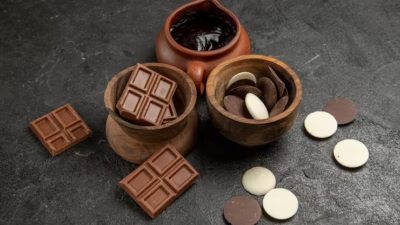It can be hard to tell where a habit ends and addiction begins. We all fall into routines, some of them good, others less so. But when a pattern starts taking more than it gives, draining your energy, straining your relationships, or quietly running your life, it may be a sign that something deeper is happening. Understanding this difference isn’t just about putting a label on your behavior. It’s about knowing when to step in, when to ask for help, and when to recognize that what feels manageable now could turn into something heavier later.
When Burnout Pushes the Line
For many professionals, long hours and constant stress create the perfect storm for unhealthy coping mechanisms. At first it may look like grabbing an extra drink after work, taking a pill to sleep, or relying on stimulants to stay awake. But what begins as a way to manage pressure can shift into dependence, especially if the pressure never eases. Professionals who spend years ignoring their own limits sometimes find themselves at a breaking point where burnout is no longer just emotional exhaustion but a gateway to substance abuse.
That’s why avoiding burnout isn’t just about taking vacations or practicing mindfulness; it’s about recognizing when your ways of coping are hurting more than helping. The body and mind can only run on empty for so long before they look for shortcuts, and if those shortcuts involve substances, the risk of addiction becomes real.
When Faith Feels Fragile
For people of faith, one of the hardest moments comes when struggles shake the foundation they’ve leaned on. Instead of leaning into prayer, scripture, or community, some turn to alcohol or drugs to quiet their doubts. The difference between a bad habit and addiction in this context often lies in where someone seeks comfort. A person who turns to substances as a regular substitute for spiritual connection is stepping into risky territory.
That’s where a Christian drug rehab can offer support that feels both practical and aligned with faith. These programs blend clinical treatment with opportunities to reconnect spiritually, reminding people that healing doesn’t have to replace faith but can strengthen it. The line between habit and addiction becomes clearer when you notice whether your choices are pulling you closer to or further from the values that once grounded you.
The Brain’s Clues
One of the most important distinctions between a bad habit and an addiction comes down to the brain’s wiring. A habit, even a destructive one, is often tied to cues and rewards you can adjust with effort and time. Addiction, on the other hand, hijacks the brain’s reward system. Instead of being a choice you can simply opt out of, it becomes a compulsion that overrides logic and long-term goals.
That’s why someone with an addiction may keep using even when they desperately want to stop. Recognizing this isn’t about excusing the behavior but about understanding that the biology of addiction changes what’s possible without outside help. If you’ve tried to stop and found yourself unable to, even with strong motivation, that’s a sign you may be dealing with something bigger than habit.
When Relationships Reflect the Truth
Sometimes the clearest signal that something has crossed the line comes from the people closest to you. A bad habit might annoy or inconvenience others, but addiction tends to erode trust, create conflict, and strain bonds in ways that are hard to ignore. Friends or family may notice mood swings, secrecy, or financial strain long before the person struggling does.
If multiple people who care about you have voiced concern, it’s worth pausing to consider their perspective. Addiction doesn’t exist in isolation. It ripples outward, and relationships often carry the first signs of damage. Listening to those reflections can help you see what’s hard to admit on your own.
The Cost of Control
A bad habit feels like something you’re in charge of, even if it takes effort to manage. Addiction flips that balance. Instead of controlling the behavior, the behavior starts controlling you. That shift shows up in subtle ways at first, skipping responsibilities, hiding usage, rearranging life around access to substances.
Over time it becomes harder to deny. If your day revolves around when and how you’ll satisfy the urge, the line has already been crossed. This loss of control is one of the most telling signs of addiction and also one of the most painful. It strips away choice and replaces it with compulsion, leaving little room for the person you used to be.
Choosing Help Before it’s Too Late
The good news is that you don’t have to wait until rock bottom to get help. The very act of asking yourself whether something is just a bad habit or addiction means you’re already paying attention. That awareness is powerful. Whether you start by talking to a counselor, reaching out to a treatment center, or joining a support group, the earlier you take action, the better your chances of turning things around. Addiction thrives in silence, but it loses ground when you bring it into the open. Asking for help is proof that you’re choosing to take back control of your life before the pattern becomes unbreakable.

![7 Must-Have Digital Tools for Physical Therapy Practices [2025 Guide] 2 Physical Therapy Practices](https://divingdaily.com/wp-content/uploads/2025/10/Physical-Therapy-Practices-400x225.jpg)
